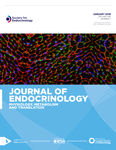Hypercapnia counteracts captopril-induced depression of gastric mucosal oxygenation
- Department of Anesthesiology , University Hospital Duesseldorf, Moorenstraße 5, 40225 Duesseldorf, Germany
- (Correspondence should be addressed to C Vollmer; Email: christian.vollmer{at}med.uni-duesseldorf.de)
Abstract
Hypercapnia (HC) increases systemic oxygen delivery (DO2) and gastric mucosal oxygenation. However, it activates the renin–angiotensin–aldosterone system (RAAS), which conversely reduces mesenteric perfusion. The aims of this study were to evaluate the effect of RAAS inhibition during normocapnia and HC on oral and gastric mucosal oxygenation (μHbO2) and to assess the effect of blood pressure under these circumstances. Five dogs were repeatedly anesthetized to study the effects of ACE inhibition (ACE-I; 5 mg/kg captopril, followed by 0.25 mg/kg per h) on μHbO2 (reflectance spectrophotometry) and hemodynamic variables during normocapnia (end-tidal CO2=35 mmHg) and HC (end-expiratory carbon dioxide (etCO2)=70 mmHg). In the control group, the dogs were subjected to HC alone. To exclude the effects of reduced blood pressure, in one group, blood pressure was maintained at baseline values via titrated phenylephrine (PHE) infusion during HC and additional captopril infusion. ACE-I strongly reduced gastric μHbO2 from 72±2 to 65±2% and mean arterial pressure (MAP) from 64±2 to 48±4 mmHg, while DO2 remained unchanged. This effect was counteracted in the presence of HC, which increased gastric μHbO2 from 73±3 to 79±6% and DO2 from 15±2 to 22±4 ml/kg per min during ACE-I without differences during HC alone. However, MAP decreased similar to that observed during ACE-I alone from 66±3 to 47±5 mmHg, while left ventricular contractility (dPmax) increased from 492±63 to 758±119 mmHg/s. Titrated infusion of PHE had no additional effects on μHbO2. In summary, our data suggest that RAAS inhibition reduces gastric mucosal oxygenation in healthy dogs. HC not only abolishes this effect, but also increases μHbO2, DO2, and dPmax. The increase in μHbO2 during ACE-I under HC is in accordance with our results independent of blood pressure.
- Received in final form 9 June 2013
- Accepted 11 June 2013
- Made available online as an Accepted Preprint 11 June 2013
- © 2013 Society for Endocrinology











